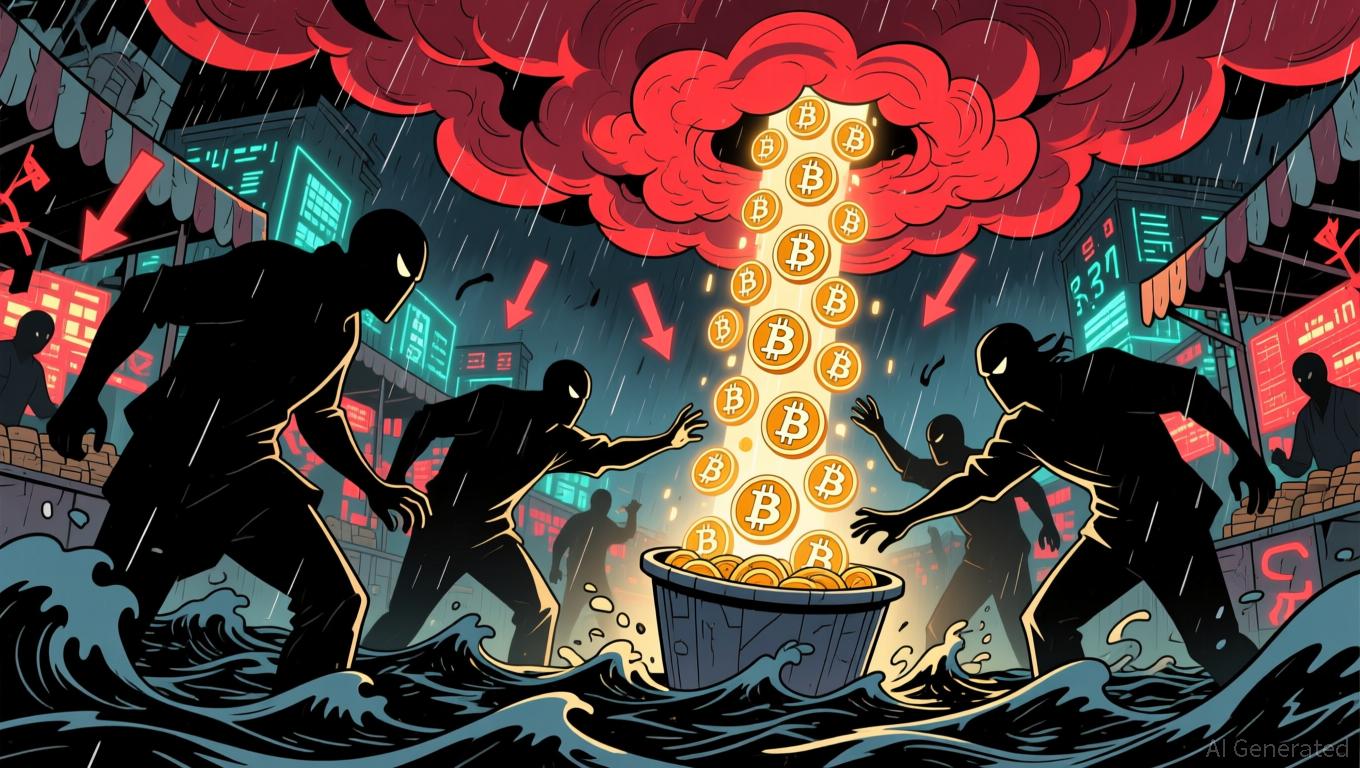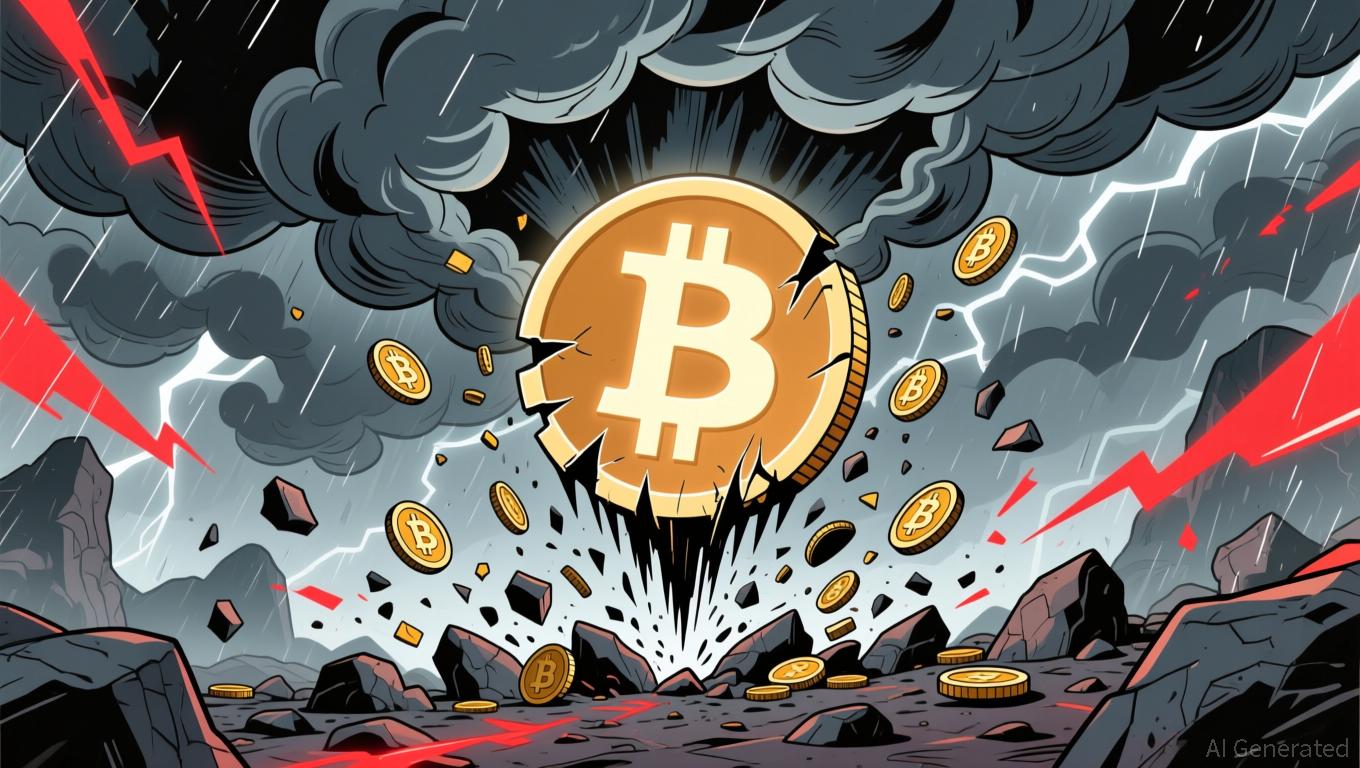Modern Monetary Theory and the Valuation of Cryptocurrencies: Do MMT Principles Support Rapid Increases in Token Prices?
- 2025 analysis explores whether Modern Monetary Theory (MMT) can justify Momentum (MMT) token's 1,300% price surge. - Token's rise stems from Binance airdrops, U.S./EU regulatory clarity, and institutional investment, not MMT principles. - Academic research highlights crypto valuation duality: network effects coexist with speculative behavior driven by heterogeneous expectations. - MMT influences macroeconomic frameworks (CBDCs, fiscal policy) but fails to predict token-specific surges dominated by retail
Differentiating Modern Monetary Theory and the Momentum Token
Modern Monetary Theory, as an economic approach,
MMT Approaches and Crypto Asset Valuation
Central banks have woven MMT concepts into their policy arsenal,
Algorithmic stablecoins like USDsd
Momentum Token: Speculation or MMT Impact?
Although the Momentum token’s dramatic 1,300% rise in 2025 is sometimes linked to MMT, a deeper look suggests otherwise.
Scholarly Views: MMT and Speculative Forces
Studies published in 2025
Dangers of Speculative Mania
Indicators like the Money Flow Index (MFI) and Relative Strength Index (RSI) have been useful in forecasting crypto trends,
Summary: Weighing MMT Against Market Realities
Modern Monetary Theory is undoubtedly influencing the broader economic context for digital currencies, especially through the rise of CBDCs and evolving regulations. However, dramatic price increases in specific tokens—like that of Momentum—are still primarily the outcome of speculation, airdrops, and institutional strategies, rather than MMT fundamentals. Investors should be careful to separate broad economic trends from token-level speculative forces to avoid overestimating the predictive value of MMT in crypto markets.
As 2025 draws to a close, the relationship between MMT and crypto asset valuation will hinge on how well policymakers can balance fiscal adaptability with technological strength. For now, MMT-based price forecasts remain unsubstantiated, with speculation continuing to play the dominant role in shaping crypto market trends.
Disclaimer: The content of this article solely reflects the author's opinion and does not represent the platform in any capacity. This article is not intended to serve as a reference for making investment decisions.
You may also like
Bitcoin News Update: Bitcoin's Recent Decline: Can Institutional Investors Help Steady the Market or Intensify the Slump?
- Bitcoin's price drop below $85,000 has intensified debates as long-term holders offload over 400,000 BTC, per economist Peter Schiff's warning about "weak hands" deepening selloffs. - High-profile exits like Owen Gunden's $1.3B BTC liquidation highlight profit-taking by OGs, while institutions via ETFs have absorbed 2.39M BTC since 2024, per Ark Invest. - Market fragility worsens as gamma exposure forces dealers to sell near $85,000 support, but institutional demand could stabilize prices if buying conti

YFI Value Drops 4.78% Over the Past Week as Market Fluctuations Continue
- YFI rose 0.1% in 24 hours but fell 4.78% in seven days, with 14.2% monthly and 50% annual declines. - Price movements reflect broader market instability, not project-specific updates or governance changes in Yearn.finance. - Analysts predict YFI remains sensitive to macroeconomic trends and global investor sentiment in the near term. - Token consolidation continues without fundamental shifts, urging investors to monitor on-chain metrics and protocol updates.

Bitcoin News Today: Bitcoin Drops to $90K—Is This a Prime Buying Chance or the Start of a Deeper Downturn?
- Bitcoin fell below $90,000, pushing 70% of active capital into losses and erasing $120B in market value. - Short-term holders face >30% drawdowns, with fear metrics hitting 2-year lows as $1.9B in leveraged positions liquidated. - Analysts cite historical rebounds after extreme fear, but MicroStrategy's leveraged holdings risk further selling if prices drop. - Institutional actions and Fed policy uncertainty remain key factors, though oversold indicators suggest potential 40% near-term rebound.

Coast Guard Strengthens Prohibition of Hate Symbols to Combat Antisemitism and Extremist Activity
- U.S. Coast Guard reversed a policy to reclassify hate symbols like swastikas and nooses from "potentially divisive" to prohibited, following backlash from lawmakers and advocacy groups over antisemitism risks. - The reversal came after a leaked draft proposal aligned with Trump-era Pentagon directives, which critics argued weakened harassment definitions and accountability for hate incidents. - Coast Guard reaffirmed strict prohibitions on divisive symbols, emphasizing severe punishment for violations, b
